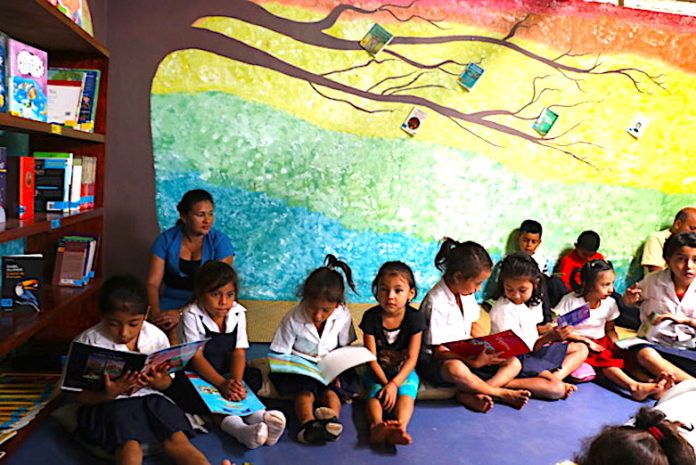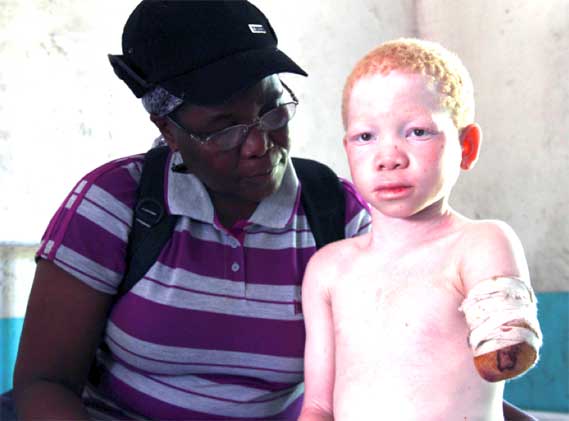 By Antonia McGrath
By Antonia McGrath
For decades, the international development sector has been centred around the knowledge of foreign experts and their clear-cut visions and frameworks of how development can and should take place. But up in the Sierra de Agalta mountains of Honduras, a small community has taken things into their own hands.
“I always say, if we don’t lead these projects in our community, no one else is going to do it,” says Juan Rodriguez, a farmer whose eyes glint cheerfully from under his straw-coloured cowboy hat. In a checked shirt with his sleeves rolled up over his elbows, he has been one of the people at the forefront of creating La Florida’s new village library.
La Florida lies three hours by donkey into the hills. There is no electricity or running water, let alone access to the internet. Houses are scattered amongst thick vegetation, far enough apart that if you were just passing through, you might not realize you were in a village at all. And at the centre is the school, with every inch of its walls covered in carefully painted murals.
“We really try and make it into a home for the children,” explains Nery, who singlehandedly runs the entire primary school along with a secondary school distance-learning programme. “We have great strengths and a lot of support from the families in the community, and interest from the children who all strive to be better every day. Together we are an amazing team.”
The can-do attitude and strong sense of community are what made the La Florida library such a transformative project. While it was supported by a non-profit, this was not a donation, it was an entirely locally-led community undertaking. With hand-painted murals, carefully selected stories from across Latin America and the world, and partially fundraised-for by the community themselves, this library has transformed education for the children in this village.

educate. relies on the knowledge of local communities who identify needs and drive projects from start to finish.
It all started in 2018 when Nery came across the Scottish-registered non-profit educate.on Facebook. educate. is a grassroots organisation that works to support community-driven educational initiatives in Honduras, with local leaders at the forefront of our work. (It is, for full transparency, also an organization I run). In an effort to counter dependency and to promote long-lasting and deeply impactful change, educate.relies on the knowledge of local communities who identify needs and drive projects from start to finish.
“I work in a school in Catacamas, Olancho,” Nery wrote in his first message to us. “It’s a school of 20 students across six grades, all together in one classroom.” The school – named Francisco Morazán after a renowned Central American politician who tried to unite the countries of Central America into a single nation back the mid-1800s – was not actually located in Catacamas, but in La Florida, three hours outside the city into the mountains. Nevertheless, it was a necessary reference point – La Florida would have been too small for us to locate on a map.
In his message, Nery talked about the community and the dedication of the parents, and their frustration at the economic barriers holding them back from providing students with creative learning opportunities. In Honduras, the public education sector has been utterly neglected and schools in remote areas like this one receive little to no support. “I would love for my students to have books,” said Nery, “so they can learn things they cannot even imagine.”

Altogether, the project took a year to complete. The community organized nacatamale sales to fundraise a portion of the cost, they formed a library committee to lead the creation of a plan for how they wanted to use their library once it was complete (they decided on a fascinating traveling book box plan, where children would take books and read together across the village after school, in addition to in-school library time every morning), they cleaned and prepared the school’s spare room, and researched and selected a variety of books. Countless conversations took place between the community and educate.’s project coordinators before – finally – it was time for the library set-up week.
Several days were allocated to the community mural painting process, bringing in and organizing the books, and creating the beautiful space that the La Florida library has become. The students even got together to design their own list of rules, which were stuck to the back of the door as a reminder for everyone using the new library. The process brought everyone together for a time of co-creation and celebration, and created a deep sense of ownership over this new space.
The community named their library “Leer es Soñar” – To Read is to Dream.

But local community leadership is still not the norm
educate.was founded in 2017, in many ways in response to witnessing some of the systemic problems plaguing the development sector: a reliance on foreign “expert” knowledge, a lack of local leadership, and endless assumptions of western superiority embedded within organizational structures and their functioning.
A prime example of a well-meant development project gone wrong is the blue church. The blue church is a building I used to pass almost every day on my way in and out of town when I was living in Honduras, in an aldea on the outskirts of the city of El Progreso. Here, the vast blue façade of an American-funded Evangelical church dwarfs the adjacent array of tin-roofed houses, utterly incongruous with its surroundings. The church was funded and founded by a group of evangelist American missionaries, who came to Honduras to spread what they believe to be the words and teachings of their God. But on Sundays, villagers gather at their own church, one that has stood in their village far longer than this one. This church now stands as a reminder of the ineffectualness of uninformed aid work and an emblem of what not to do.
The whole NGO sector suffers from the same problem: prioritizing the knowledge of outsiders over locals, assuming that foreign “experts” know best.
It was another local missionary who first told me this story. He had lived in Honduras for close to a decade, a jack-of-all-trades type who worked as a farmer, handyman, teacher, and probably a few more things besides. He shook his head in frustration at the amount of funding that had gone into this project, the thousands of dollars that had been wasted on an unused building when there were so many necessary and worthwhile projects to invest in. Yet these missionaries had come, as they so often have throughout history, with their own ideas and assumptions to impose, and the project had failed spectacularly.
Unfortunately, this story is one of far too many, and it’s not just missionaries. The whole NGO sector suffers from this very same problem, championing the knowledge of outsiders over locals, assuming that foreign “experts” know best.

Top-down structures rooted in colonialism
In the United Kingdom, the vast majority of charity workers are white and middle class. The same is true of the US, where 87% of non-profit executive directors are white. This creates a deep division between organisations and the communities they are designed to serve, whereby white, western-educated, middle-class individuals largely control funding for projects in the Global South, despite how removed most of these individuals are from the problems they are tackling.
These power relationships and hierarchies of control are relics of colonialism, entrenched in the functioning of the sector not because of their effectiveness but because of the idea that “poor countries” are and should be striving for the same kind of (capitalist) development that Western countries have for so long championed (models which themselves were built on the exploitation and slavery of colonialism).
While the intent is rarely malicious, by prioritizing the beliefs of foreigners (well-intentioned as they might be) over local communities, more often than not the result is a situation whereby development is done to people, rather than with them or by them. What you end up with are situations like the missionaries and their church, built on well-meant ideas rather than genuine needs, and lacking the authentic local leadership necessary to shape something necessary, impactful or sustainable.
Ultimately, the development sector replicates many of the very injustices it claims to work against, reproducing these historical power dynamics and stripping agency from the very people it claims to support. These structures are so engrained within the sector and how it functions that they are largely unquestioned. But how can international organisations truly work towards equality when they underpay local staff, continue to think of development as unidirectional, and don’t allow for a true shift in power towards local leaders who most fully understand the needs of their own communities?
Failures like the wasted investment in the blue church are just the tip of the iceberg. The consequences of these mismatched power relationships can be far more dire, including cases of abuse and violence at the hands of foreign non-profits, development organizations and their workers. And every time it comes down to the same thing: power in the wrong hands.
A new path is sorely needed, one that allows communities and local leaders the power they need and deserve in order to drive change from the ground up, leading the struggle against the issues that most directly affect them.

A shift towards community power
Communities have resources. They have power. They have knowledge.
Communities have resources. They have power. They have knowledge. This goes for all communities, wherever they are in the world. There are always people fighting for change, working towards bettering their own lives and the lives of others.
Community-driven development is focused on finding and supporting these people and championing their leadership. It is rooted in an understanding that communities have valuable knowledge of their surroundings and local systems, deep cultural understanding, strong existing relationships, and important skills. By focusing on these strengths and supporting the existing leaders and groups within these communities, development organizations and NGOs can support genuine local needs and the strengthening of local structures that can create systematic, long-lasting change. While local NGOs currently receive less than 2% of humanitarian funds, by re-directing funding and power downwards, local leaders and their communities can be given the chance to drive the changes they see as most vital for their communities to thrive.
Authentic community leadership can lead to higher impact, greater sustainability, and a much deeper sense of ownership over a project. And the good thing is that this is already happening. Groups such as the Movement for Community-Led Development, the Global Fund for Community Foundations, and initiatives like The Spindle’s Shift-The-Power Lab are making waves in shifting narratives, funding and power downwards towards communities themselves. The Black Lives Matter movement has also spurred a greater conversation amongst the development community about diversity in the sector and the need for greater representation and decision-making power from communities benefitting from projects.

Acting as a catalyst
Since the La Florida library’s completion, Nery and his students have travelled to Catacamas to talk about their library at a department-wide educational conference. Students have also organized community reading days where they have presented book reports and performed plays based on their favourite stories, and once a month family members come from across the village to read with their children.
We must change both narratives and structures, shifting power towards those who truly know what their own communities need.
Communities don’t need foreign NGOs to come in and run things, they need to be listened to and supported. Organisations need to facilitate, and then get out of the way and let local leaders do what they do best.
If we are to avoid the unintended harmful consequences of development projects run by outsiders and the unequal power relationships that they foster, we must change both narratives and structures, shifting power towards those who truly know what their own communities need.
The colourful oasis of learning in La Florida is being used actively and intentionally by the community, because the community themselves was able to drive and shape the project according to their own collective vision. Nery and his students and parent community led the project from beginning to end, while educate.was able to provide the support they needed to make it possible. But the ideas and the leadership were theirs.
And because of that, so is the library.












[…] This article originally appeared in Global South Development Magazine. […]
“We must change both narratives and structures, shifting power towards those who truly know what their own communities need.” Loved this statement. Global development really needs a reshuffle. I have worked in the system for more or less 10 years, and the system is honestly broken. It’s been a good employment opportunity for a selected few of the white middle class, as said in this article, and also a few influential elites in the developing world. Sad, but true. That’s what I have seen and experienced.
This is what China is doing basically..in many parts of the world. Giving aid with no strings attached. Western donors should learn from China and from initiatives like this one.